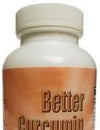Yes, it can. This may come as a surprise to some since high protein, low carbohydrate diets are still recommended as the healthiest way to eat by some.
This is what was found in a study investigating the effects of diets varying in protein and glycemic index on cardiovascular risk factors (Gogebakan O, et al. 2011).
Low glycemic index carbohydrates reduced highly sensitive C-reactive Protein (hs-CRP) (an inflammatory marker) the most, but a low protein intake also reduced hs-CRP.
If you want to keep inflammation (which is a risk factor for all chronic diseases) low, a low carbohydrate/high protein diet is apparently not the way to do it.
What is an adequate protein intake for most people?
The requirement can vary somewhat and will increase with extremely hard exercise, but it will not increase as much as some people think it will.
The calorie need (energy requirement) will also increase with hard physical activity.
The RDA for protein is 0.8 g per kg of body weight and is adequate for most people.
Most people will not need more than 1.0 g of protein per kg of body weight even if they are physically active and exercise regularly, unless they exercise extremely hard.
In those cases there is a lot of research documenting how to recover faster after hard training.
Most people eat more protein than they need.
Learn to Eat:
Recommendations that work. This is not a regular diet program.






